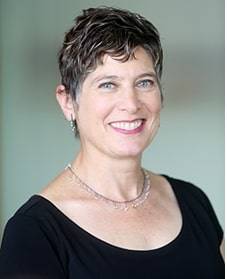Inauguration Day. I’m listening to Amanda Gorman read her poem “The Hill We Climb” as I drive, thinking of my parents, and how proud they would be at this moment. We called them “the love birds.”
In 1948, when she was 20 and he was 25, they met at an engagement party for mutual friends whom my father had introduced to one another. The successful match was inspired after Dad was set up on a date with someone he deemed too tall to be his love interest.
“You’re a nice girl,” he told her. “Let me introduce you to my friend – he’s more your size.”
A few months later the tall couple were engaged, and Daddy met his future bride at their party. All these young people were refugees, Holocaust survivors who clung tightly to others who had lived when nearly everyone else in their family perished.
“I liked her right away,” Daddy told me about meeting Mom. “She had spunk, lots of self-confidence. She was just right for me.”
Indeed. My parents married soon after and adored each other until death took them, just months apart, after 53 years.
They loved the United States of America and taught their daughters to appreciate the freedoms we sometimes took for granted. Both Mom and Dad were liberated by soldiers of the American army — Dad from the Mauthausen concentration camp and Mom from her hiding place in Liege, Belgium. Mom survived with her mother, my Bubby, the other major force in my life.
Three years after liberation, all three were sponsored and came to the United States to start new lives. As little girls, my sister and I accompanied them every election day as they walked proudly to the polling place. Watching as they entered the curtained booth to cast their ballots, they’d say, “This is the greatest privilege in the world, to be able to vote.”
They followed current events avidly and taught us to do the same. In the 1970s, with their blessing, my sister and I protested against the Vietnam War. Once, we casually referred to our homeland as “this f—-ing country.” Daddy, the most even-tempered of men, was furious. “It’s because of the great liberties this country affords you that you can say what you just did without fear of being arrested or worse. Don’t ever take those freedoms or this great country for granted!” Lesson learned.
Daddy died first, and soon after we found ourselves sitting shiva again, this time for my mother. After the seven days of mourning, I returned home to Mercer Island. Early in the morning, I went to synagogue to say Kaddish, the Jewish prayer for the dead. On weekends, services at Herzl-Ner Tamid are conducted in a gigantic hall. But on weekday mornings, with only a few in attendance, the faithful meet in a small room with a giant window overlooking Lake Washington.
Suddenly, two eagles flew by in tandem. I gasped as the birds played and soared as one. Calling my sister the minute I reached my car, I blurted, “The most amazing thing just happened — like a sign that Mom and Dad are together again.” The eagles brought me comfort.
Eighteen years have passed. I’m crossing Lake Washington on the 520 bridge as Gorman’s poem continues: “And so we lift our gazes…” I look up. A gigantic bald eagle is perched on a lamp post, looking down at me. Daddy! Then another one — Mom! And finally, a third, majestic bird, Bubby!
All my heroes, sharing this moment of change in our country. A good sign of things to come.
–
Mindy Stern is a Mercer Island resident and writer who is working on a book about the lives of medical residents and fellows.



